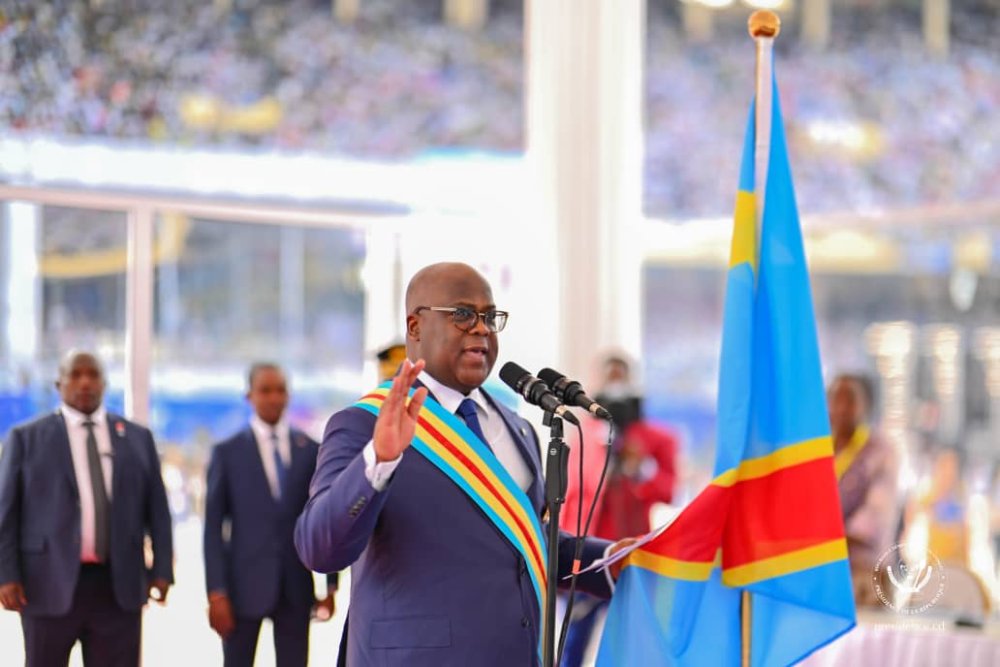President Félix Tshisekedi of the Democratic Republic of Congo (DRC) is reportedly preparing a discreet plan to extend his presidency by amending the Constitution, citing the need for long-term measures to address the ongoing conflict in North Kivu. This move, which began circulating within the ruling Union Sacrée coalition earlier in 2024, has sparked widespread debate both within the country and on social media.
During a visit to France on May 1, 2024, Congolese citizens residing in the country pressed Tshisekedi on the rumored plan. In response, he distanced himself from the idea, saying, “I am not the one to change the Constitution. Amending it follows a process. The people, through their representatives, are the ones who request it. Don’t label me a dictator.”
However, Tshisekedi’s subsequent remarks in Brussels on May 3 raised suspicions when he announced his intention to establish a national commission to explore how to create “a Constitution that suits our country.” This led many to believe the President is laying the groundwork for an amendment to the February 18, 2006 Constitution, which limits the presidency to two terms.
Members of Tshisekedi’s UDPS party argue that his leadership is crucial in the ongoing fight against the M23 rebel group in North Kivu. They fear that, without Tshisekedi, efforts to contain the rebellion could falter, allowing M23 to maintain control over territories in the region.
Jean Claude Katende, a prominent political figure and head of the ASADHO organization, confirmed that the UDPS has already drafted a proposal to amend the Constitution. He criticized the move, stating, “How can Congolese people accept to grant more years to a leader who has failed to prove himself in five years? This leader does not have the ability to solve Congo’s pressing issues.”
Similarly, human rights activist Len’s Omelonga voiced concern that the President should focus on fulfilling his government’s commitments before considering constitutional changes. “Instead of implementing government policies and fulfilling election promises, the Union Sacrée government, driven by self-interest, has prioritized amending the Constitution to allow Tshisekedi to exceed the two-term legal limit,” Omelonga remarked.
On October 2, UDPS Secretary-General Augustin Kabuya, a close ally of Tshisekedi, defended the push for constitutional reform. He argued that the current Constitution contains gaps that fail to address the wartime situation in the DRC. Kabuya emphasized that revising the Constitution is essential to safeguard the country’s sovereignty, and criticized those opposing the amendment as not being “true politicians.”
“When the United States or France amend their Constitutions, there is no issue. Why do people oppose it here?” Kabuya asked.

However, not all political leaders agree with this approach. Claudel Lubaya, a Member of Parliament and leader of the UDAO party, argued that the DRC is deteriorating under Tshisekedi’s leadership. He stated that the current Constitution does not prevent Tshisekedi from fulfilling his duties as he promised during his campaign.
Lubaya urged Tshisekedi to deliver on the promises he made to the Congolese people, warning that if he pursues this plan, he could face a fate similar to that of Blaise Compaoré, the former President of Côte d’Ivoire, who was ousted for attempting to amend the Constitution to extend his rule.
Tshisekedi has been in office since January 2019, after succeeding Joseph Kabila. His second and final term is set to end in 2028. As the debate over constitutional reform intensifies, the DRC faces a pivotal moment that could reshape its political future. Whether Tshisekedi’s plan to extend his presidency will succeed remains to be seen, but it has already ignited significant controversy and opposition within the country.


